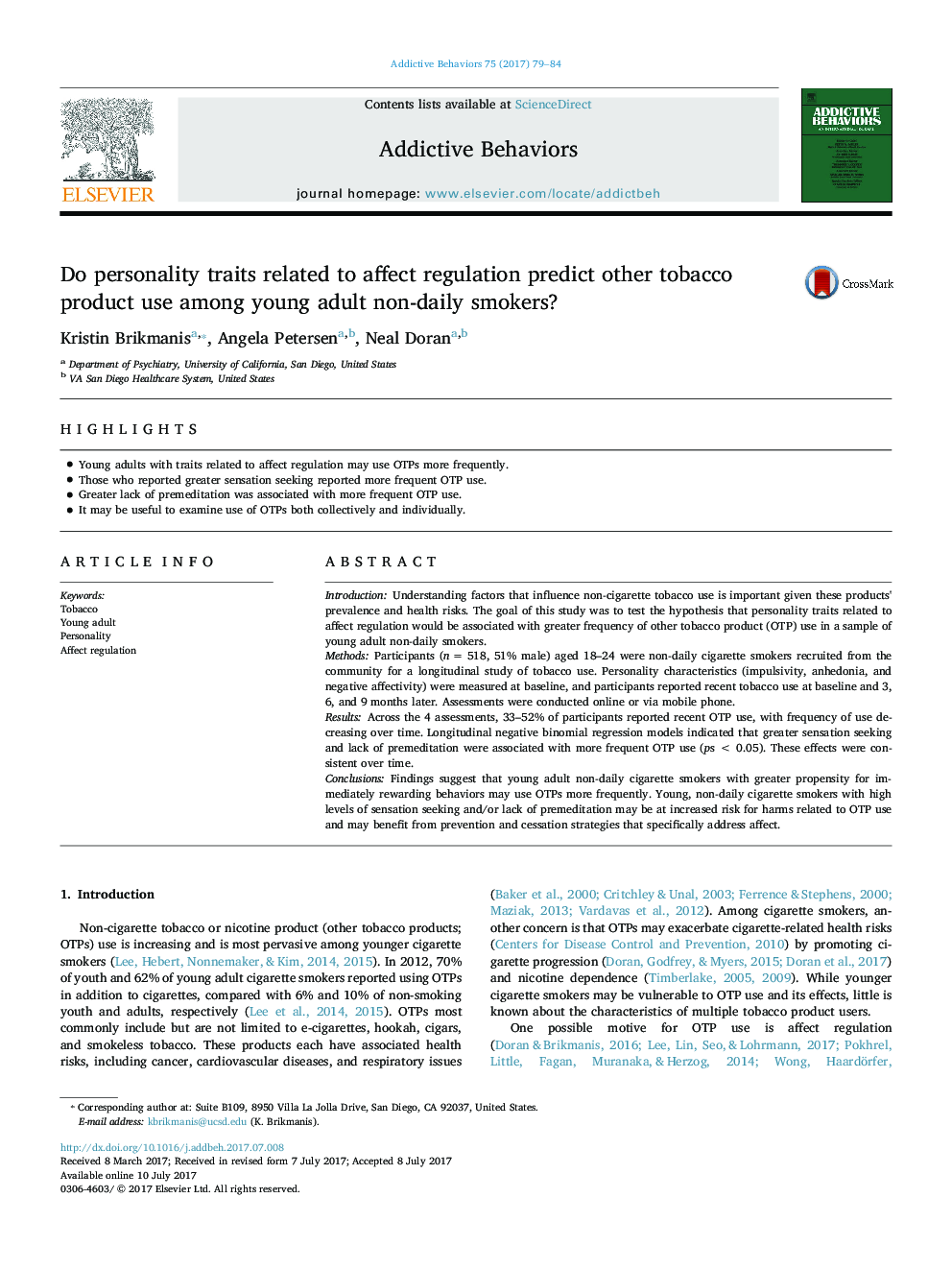| کد مقاله | کد نشریه | سال انتشار | مقاله انگلیسی | نسخه تمام متن |
|---|---|---|---|---|
| 5037671 | 1472496 | 2017 | 6 صفحه PDF | دانلود رایگان |
- Young adults with traits related to affect regulation may use OTPs more frequently.
- Those who reported greater sensation seeking reported more frequent OTP use.
- Greater lack of premeditation was associated with more frequent OTP use.
- It may be useful to examine use of OTPs both collectively and individually.
IntroductionUnderstanding factors that influence non-cigarette tobacco use is important given these products' prevalence and health risks. The goal of this study was to test the hypothesis that personality traits related to affect regulation would be associated with greater frequency of other tobacco product (OTP) use in a sample of young adult non-daily smokers.MethodsParticipants (n = 518, 51% male) aged 18-24 were non-daily cigarette smokers recruited from the community for a longitudinal study of tobacco use. Personality characteristics (impulsivity, anhedonia, and negative affectivity) were measured at baseline, and participants reported recent tobacco use at baseline and 3, 6, and 9 months later. Assessments were conducted online or via mobile phone.ResultsAcross the 4 assessments, 33-52% of participants reported recent OTP use, with frequency of use decreasing over time. Longitudinal negative binomial regression models indicated that greater sensation seeking and lack of premeditation were associated with more frequent OTP use (ps < 0.05). These effects were consistent over time.ConclusionsFindings suggest that young adult non-daily cigarette smokers with greater propensity for immediately rewarding behaviors may use OTPs more frequently. Young, non-daily cigarette smokers with high levels of sensation seeking and/or lack of premeditation may be at increased risk for harms related to OTP use and may benefit from prevention and cessation strategies that specifically address affect.
Journal: Addictive Behaviors - Volume 75, December 2017, Pages 79-84
